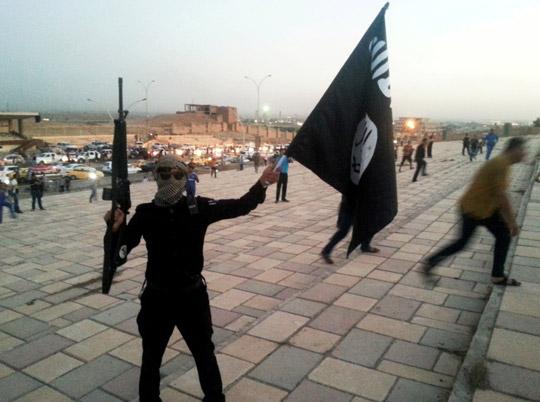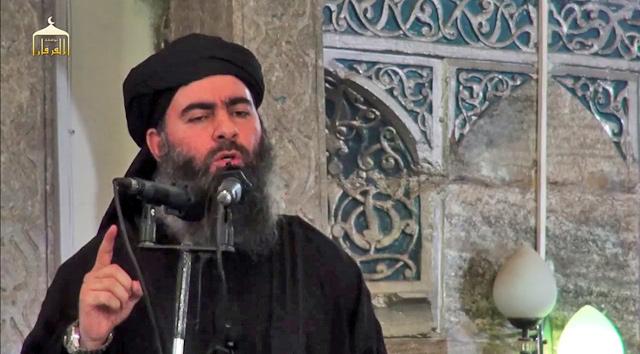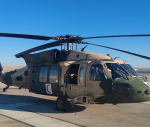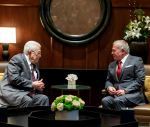You are here
Many foreign fighters likely to stay in Syria, Iraq — US official
By Reuters - Jul 22,2017 - Last updated at Jul 22,2017

A fighter of the Daesh terror group holds a Daesh flag and a weapon on a street in the city of Mosul on June 23, 2014 (Reuters photo)
ASPEN, Colorado — In a new assessment, the US intelligence community judges that large numbers of foreigners fighting for the Daesh terror group in Iraq and Syria likely will stay to defend what is left of their self-declared caliphate rather than return to their homelands, a top US counterterrorism official said on Friday.
"Many if not most of the foreign fighters who made their way to the conflict zone will end up staying, fighting and potentially dying in order to maintain the caliphate," Nicholas Rasmussen, the director of the US National Counter Terrorism Centre, told the annual Aspen Security Forum.
That contrasts with the previous assessment that many foreign fighters would return home, posing major security threats.
Rasmussen also said that he has seen no information confirming recent reports that Daesh leader Abu Bakr Al Baghdadi has been killed. US Defence Secretary Jim Mattis said on Friday he assumes that Daesh leader Abu Bakr Al Baghdadi is still alive.
"I've seen nothing that would lead me to believe that the leader of ISIS [Daesh] has been removed from the battlefield," Rasmussen said. "We know a good bit. We just don't have information that would confirm his death and demise."
The new foreign fighter assessment will be welcome news to the countries of origin of the tens of thousands of extremists. They flocked to fight for the caliphate that Daesh declared in 2014 after storming out of Syria, seizing the northern Iraqi city of Mosul and charging to Baghdad's outskirts.
Extremists who have returned home have staged attacks that claimed scores of lives, and governments have been bracing for new strikes as the group loses ground in Syria and Iraq.
US-backed Iraqi forces recaptured Mosul this month and US-backed Kurdish and Syrian Arab fighters are moving to retake Raqqa, the group's main stronghold in northeastern Syria.
Rasmussen noted that the US intelligence community, which estimated that some 40,000 foreigners joined Daesh in Syria and Iraq after the conflict began, until recently assessed that many would return home.
“At one point, we were worried about this out-rush, outflows, massive outflows of foreign fighters once the battlefield situation changed in Iraq and Syria and that Western countries, countries in the region, would be flooded with returnees,” he said. “I think now speaking kind of broadly, that’s less likely than we first assessed.”
A US intelligence official, speaking on condition of anonymity, said that fewer than 15,000 Daesh extremists still are fighting in Iraq and Syria.
It has become harder for foreign fighters to return home because of the ongoing combat operations and because Turkey and other countries have significantly tightened their borders, the intelligence official said.
While there may be no major outflow of foreign fighters, Rasmussen said he is concerned by the threat posed by Daesh’s affiliates from Asia to Africa.
He said he also remains worried by those who manage to escape home, bringing with them specialised skills like bomb-making, that they acquired in Syria and Iraq.
Related Articles
BAGHDAD — The Iraqi air force has targeted a meeting of commanders from the Daesh terror group that its leader Abu Bakr Al Baghdadi may have
BAGHDAD, Iraq — Daesh leader Abu Bakr Al Baghdadi is hiding in eastern Syria and moves around with only a small group of followers, includin
PARIS — US-backed forces have launched an offensive on the Daesh group's last stronghold in eastern Syria, but the man dubbed the world's "m

















